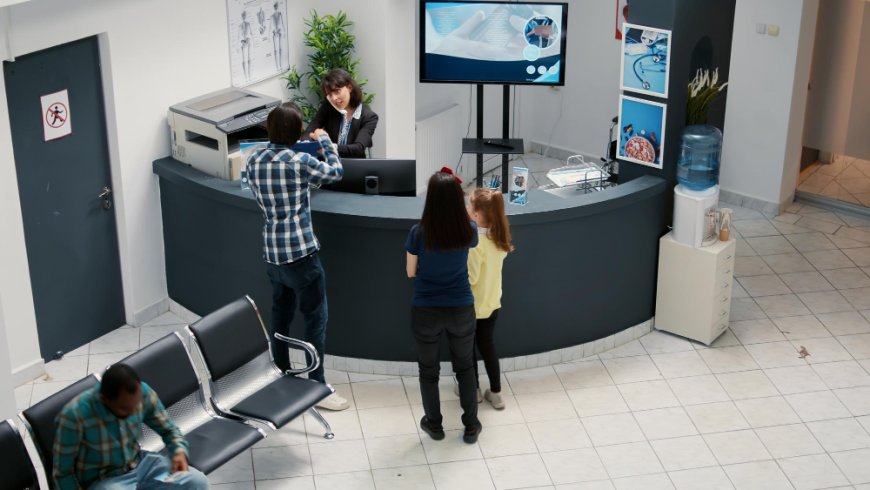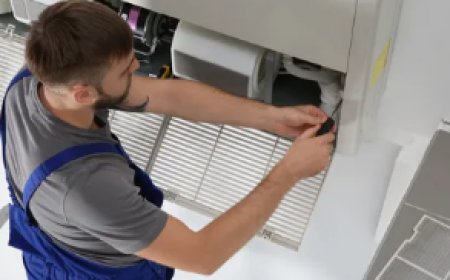Do Hospital Rooms Have Cameras? What to Expect During Your Stay

If youre preparing for a hospital visit, its only natural to have questions about privacy and security. One of the most common concerns is: do hospital rooms have cameras? With the growth of security technology and increasing attention to patient safety, many hospitals now use cameras but that doesnt mean theyre installed everywhere. Understanding where surveillance exists and what its used for can help you feel more comfortable during your stay. At Cam Security Surveillance llc, we work with healthcare providers to deliver safe, compliant, and respectful Commercial Security Camera Installation systems.
Where Are Cameras Typically Installed in Hospitals?
In general, most hospitals use security cameras extensively throughout public and high-risk areas. Common locations include:
-
Hospital entrances and exits
-
Emergency rooms and lobbies
-
Parking lots and ambulance bays
-
Corridors and waiting areas
-
Supply and medication storage zones
These cameras are installed to deter theft, protect staff and patients, and maintain a secure environment. But when the question becomes do hospital rooms have cameras, the answer is more nuanced.
Most standard patient rooms do not include surveillance cameras, especially those used for general recovery or overnight care. Privacy laws and medical ethics play a significant role in this decision. That said, there are certain exceptions.
Exceptions: When Hospital Rooms May Have Cameras
Certain hospital units, due to the nature of care provided, may use video surveillance in patient rooms:
-
Intensive Care Units (ICUs) In these settings, patients require continuous observation. Cameras help medical staff monitor conditions in real time, especially when direct physical presence isnt possible.
-
Behavioral Health Wards Patients at risk of self-harm or unpredictable behavior may be monitored using ceiling-mounted cameras. These cameras are positioned and managed with strict legal oversight and patient consent.
-
Neonatal Units (NICUs) Some hospitals offer parents the ability to view their newborns remotely. These cameras are used for family reassurance as well as monitoring by medical staff.
-
High-Risk Monitoring Patients recovering from surgery, those with severe mobility issues, or those on suicide watch may be monitored via video feed. These cameras are often inactive until a specific event, such as a fall alert, occurs.
In these cases, hospitals are required to follow strict privacy laws, and often ask for written consent before any in-room monitoring begins. If youre still wondering do hospital rooms have cameras, the key is that theyre not standard only specialized rooms use them, and typically with prior notification.
What to Expect As a Patient
When youre admitted to a hospital, youll be given information about your rights, including privacy expectations. If a camera is present in your room, the hospital must inform you and explain why its necessary. Youll often be asked to sign a consent form. Heres what else you can expect:
-
Transparency: Hospitals must clearly display signage about surveillance areas. If cameras are in use, youll know.
-
Restricted Access: Video feeds are limited to authorized medical personnel. They are never accessible to non-staff or unauthorized users.
-
Secure Storage: Any footage is encrypted and stored under strict conditions, often deleted after a short retention period unless needed for clinical review or legal investigation.
At Cam Security Surveillance llc, we help hospitals establish these protocols through thoughtful, privacy-first Commercial Security Camera Installation practices.
Patient Rights and Hospital Obligations
As a patient, you have the right to know where cameras are used. Hospitals are obligated to:
-
Respect your right to privacy
-
Limit recording to only what is necessary for safety or medical care
-
Never record intimate procedures or sensitive conversations
-
Offer alternatives or accommodations when surveillance causes discomfort
If youre ever unsure or concerned, speak with your care team. They are trained to address privacy questions and explain the facilitys security measures.
The Role of Professional Installation
Proper setup and compliance are crucial when installing surveillance systems in hospitals. Thats why facilities turn to experts like Cam Security Surveillance llc. With extensive experience in healthcare environments, we provide:
-
Discreet camera placement
-
HIPAA-compliant data handling
-
Custom configurations for sensitive areas
-
Guidance on consent, signage, and patient communication
If youre a facility manager searching for professional security camera installation near me, working with a team that understands both legal and ethical implications is essential. Our tailored approach ensures your systems are functional and patient-centered.
Finding the Balance Between Safety and Privacy
Ultimately, the question do hospital rooms have cameras reflects a broader conversation about balancing modern security with patient dignity. Cameras can improve response times, reduce risk, and protect staff and patients but only when implemented with care. In most general patient rooms, you can expect complete privacy. Where monitoring is used, it should always be accompanied by transparency, consent, and respectful use.
Cam Security Surveillance llc partners with healthcare institutions to make this balance possible. Our mission is to support safer environments without compromising the fundamental rights of the people inside them.
You may also read: Elevator Security Cameras
Conclusion
So, do hospital rooms have cameras? In most cases, no unless you are in a specialized care unit where monitoring is part of the treatment process. When they are used, it is only with consent and under careful legal regulation. Hospitals aim to protect patients while preserving their dignity, and surveillance systems must follow suit.
If you're part of a healthcare facility seeking professional security camera installation near me, let Cam Security Surveillance llc guide you through a compliant and ethical process. For custom healthcare solutions, legal support, or technology upgrades, contact us today. Your patients' trust and safety are too important to leave to chance.
































